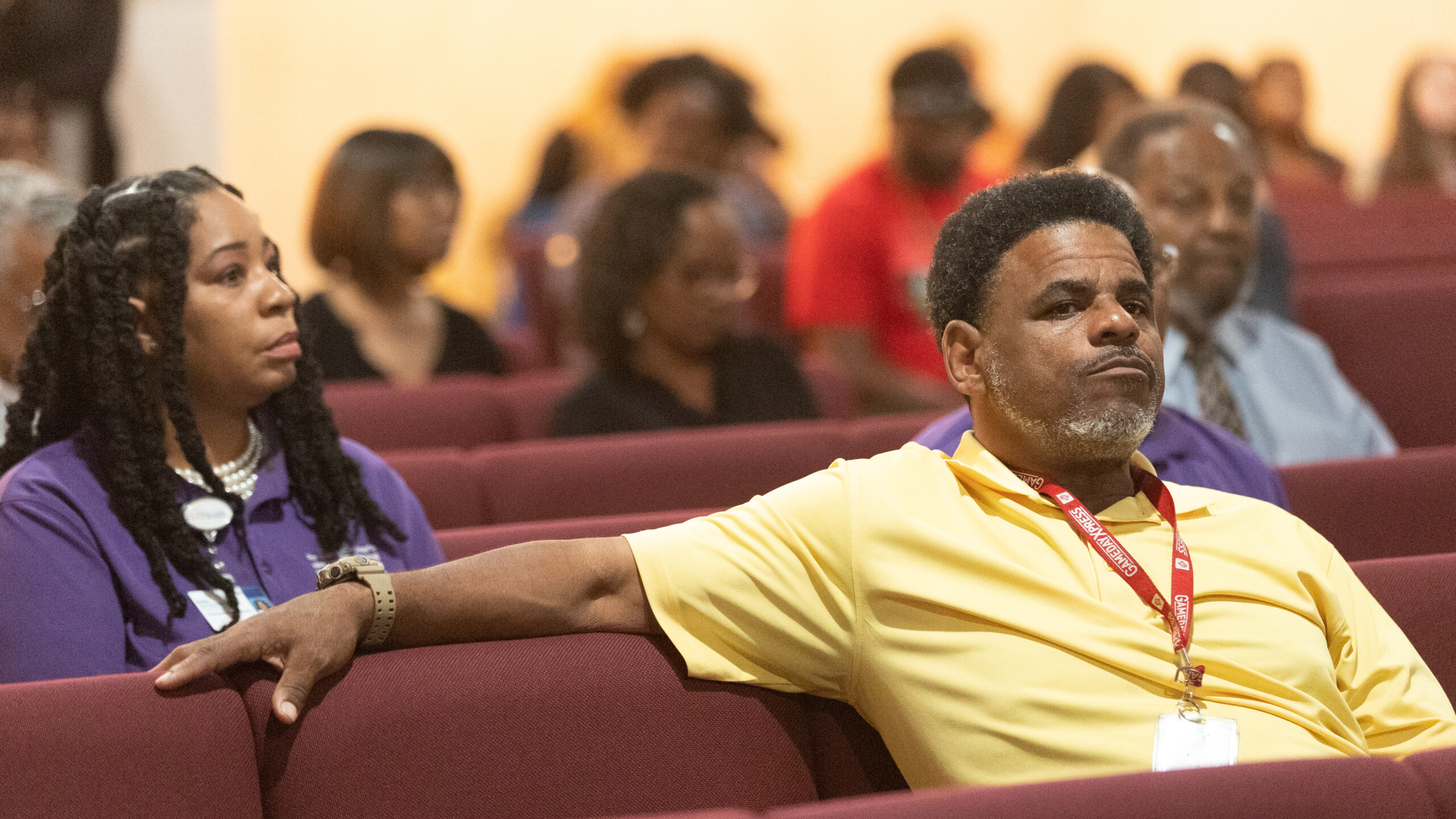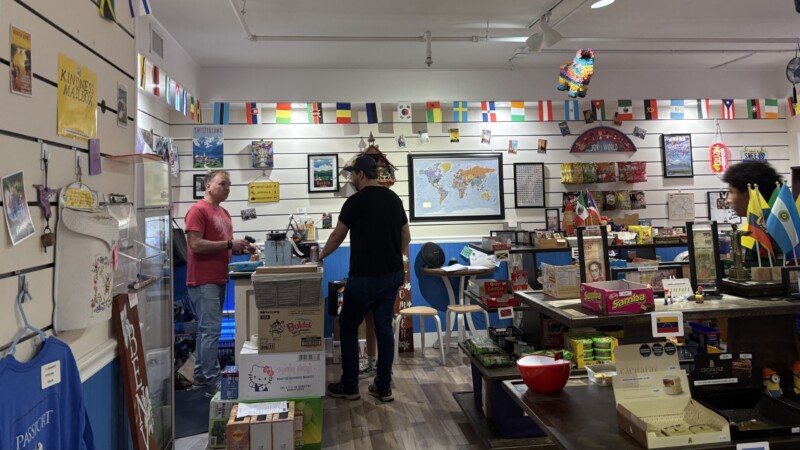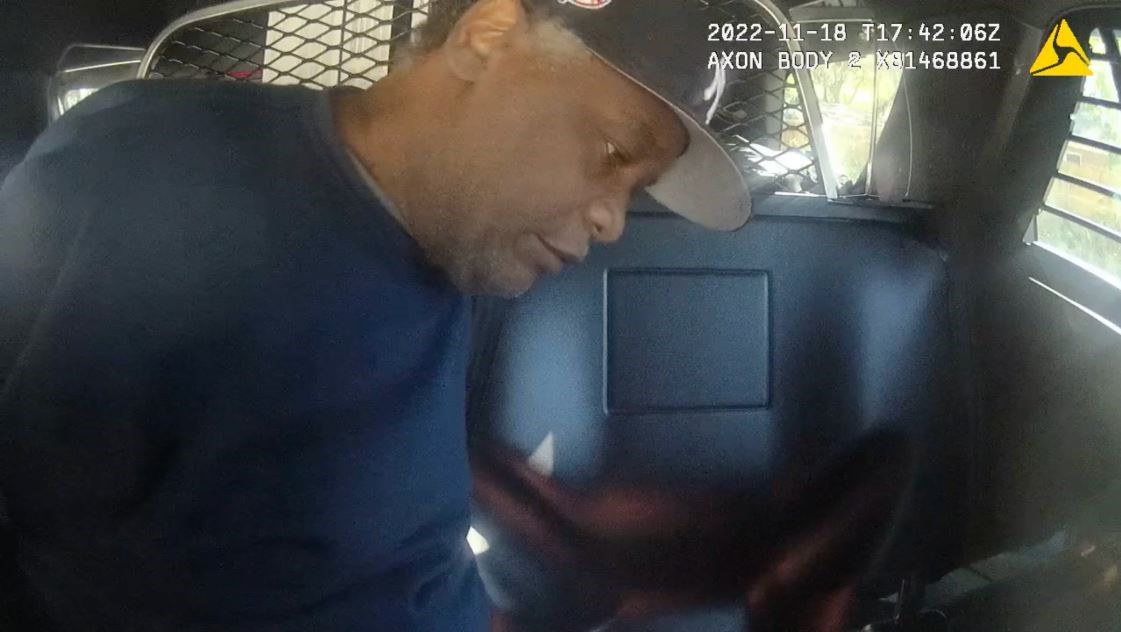University of Florida research indicates physicians know a majority of Black women are obese, yet nearly half of Jacksonville’s doctors rarely discuss weight with their patients and the health benefits of losing it.
They shared their findings during a seminar at St. Paul AME Church on Thursday afternoon.
Researchers from UF Health Gainesville and UF Health Jacksonville wanted to learn how to engage Black adults with health care providers after the pandemic.
The two-hour discussion presented findings about the predictors of health care use among older adults in Gainesville and Jacksonville; factors that influence health care and telehealth usage by Black adults, the effect of perceived racism on older Black adults as well as the effect of culturally sensitive health care.
In the latter study, Carolyn M. Tucker, the UF Florida Blue endowed chair in health disparities research within the department of psychology, found culturally sensitive health care produced a reduction in weight for patients and fostered trust with physicians.
“I am hoping that as we begin to share this data to health care providers and health care administrators that we will see a change with regard to the training of physicians and how to interact with patients of color and empower those patients to be an active part of the process,” Tucker said.
Tucker has studied health disparities for nearly 40 years. She noted that while physicians say they are not racist toward Black people, what the patient’s perceive about racist behavior is a determining factor in seeking health care.
“We can make a big change, if we could provide the training for the doctors that engage in those behaviors. …but it has to start at the top, because doctors need to have some time to actually talk with the patients. One of the things with regard to being culturally sensitive is to ask me something about how I’m doing, how’s my family doing.”
“That takes time,” Tucker continued. “Right now, doctors have about 15 minutes with a patient. So, the doctors do want to spend more time and provide better care, it’s just not happening. That means hospital administrators and leaders need to hear this data, see the importance of the training, and then it’s going to achieve what we want: better health outcomes for everybody.”
Kirsten Klein is a doctoral candidate at the University of Florida who studied factors that could improve telehealth usage. She said support from family and friends regarding one’s physical health as well as more open communication from health care providers can encourage older adults to seek telehealth options.
When the Joint Commission, a nonprofit hospital accreditation organization, revised its standards in January, one of its requirements was that organizations designate someone to “lead activities to reduce health care disparities” for patients. It also mandated that organizations assess a patient’s social needs and provide information about community resources and support services.
Other new standards included producing a written plan to address health disparities as well as collect and analyze who is receiving care in order to eliminate gaps.

Carolyn Jones has spent more than two decades as a medical educator. She says there is a need to further educate Black residents in the region about their health care options. | Will Brown, Jacksonville Today
Carolyn Jones said her experience as a Black woman with a pharmacology degree made the revelation about obesity disconcerting.
“I think the idea of health care professionals understanding the needs and the differences, culturally for African Americans, how we view the health care system, how we want to be talked to, is very important,” Jones said. “I think that was communicated today and that’s what the research showed us.”
The seminar closed by not only taking questions, but suggestions. When Jones addressed a panel that included Klein and Tucker, multiple people in the audience affirmed her comments through hums and polite applause.
Tucker said the dialogue will help her and her peers eradicate health disparities and create trust in two communities where it is lacking.
9(MDEwNzczMDA2MDEzNTg3ODA1MTAzZjYxNg004))







